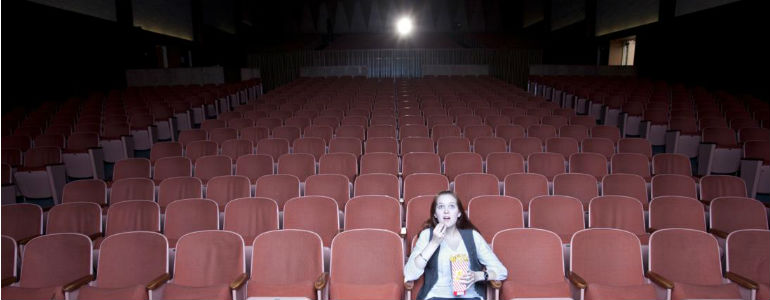You can open public accommodations, but you can’t make people patronize them

Sweden’s laissez-faire approach to COVID-19 provides a useful (if unfortunate) natural experiment. One critical takeaway is that it has infection rates much higher than its neighbors. Still, its rates have not been catastrophic by international standards — but this is because people are mostly observing social distancing voluntarily. Movie theaters are open, but nobody is seeing movies. And, as a result, Sweden also hasn’t been able to avoid economic devastation:
I still basically don’t understand @nytimes and others’ reporting that Sweden’s #Covid-19 approach has preserved its economy. Sweden projects a 7% contraction this year. US’s contraction is projected at 6%.— Eve Fairbanks (@evefairbanks) April 29, 2020
Georgia and Texas can “open” their movie theaters by making stay-at-home orders not apply to them, but they’re not going to be able to get chains to actually open because they know perfectly well that the theaters would be emptier than a Tuesday morning screening of The Adventures of Pluto Nash.
Both here and elsewhere I’ve seen a fair amount of that we might call the Bret Stephens bizarro world argument, in which people who actually look at the data and observed behavior are dismissed as being engaged in “wishful thinking” and people who through some combination of random anecdotes and projection believe there are large numbers of people eager to risk choking to death alone to eat in at the Olive Garden rather than getting curbside pickup pose as hard-headed realists. But the latter view is both implausible on its face and not supported by any meaningful evidence. There might be some movement at the margins over time, but the economy is not going to be back to anything like “normal” until people don’t fear catching a deadly virus whether things are formally “open” or not, and a restaurant with 35% of its normal customer base is no more a viable enterprise than one with 20%. Trump and his state lickspittles and Tucker and Sean might be able to convince some additional MAGA people that it’s safe, but that’s not going to work when infections spike again.
Essentially, this idea that “opening up” the economy is the path to getting the economy going again is just a case of massive denial about how much state intervention will be necessary to prevent economic collapse. Republicans think that getting putting workers and customers at additional risk will allow the economy to come roaring back, but if they get their way what they’ll get is many extra avoidable deaths with economic depression in November anyway. Whether Republican elites will figure this out in time is an open question but the vast majority of signs point to “no.”


